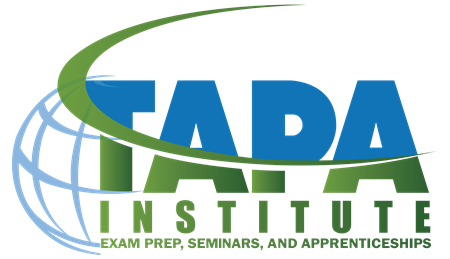Discover CPA Courses That Go Beyond The Basics
Studying for the CPA exam can seem daunting. The absolute abundance of the material, along with the stakes involved, may turn even the most determined candidate into a stagnated employee. Others go with flying colors, but as months pass, they lose their steam because it is not easy to nail the next thing of concentration. Others put it off and think they just need some more time, and then they will straighten up and get serious about prepping.
And now consider an experience of preparation in which the mist clears. Complicated accounting rules are logical. The exam questions do not seem too riddling. And instead of fearing your study time, you are eager to have it. This is the change that occurs when there is the appropriate guidance and the appropriate resources, as well as the preparation plan, which is programmed by keeping your needs in mind.
Why Traditional Study Methods Fall Short
Most CPA candidates believe that they can measure success by spending more hours and not necessarily better hours. They purchase huge review books and endure video lectures of the generic kind and attempt to memorize as much as possible. However, this can frequently lead to something known as study fatigue, or a state of time-wasting, where you are putting time in and getting fewer results.
The issue is that generic prep materials consider all applicants in the same way without taking more consideration of their learning style or background. A recent graduate, who does not have any accounting knowledge yet, requires a different treatment than a professional who has not studied the material in ten years. Without personalization, the candidate will tend to spend weeks reviewing materials he or she already knows well, while neglecting his or her weak areas.
A Foundation of Personalized Precision
The CPA course program starts off by thoroughly analyzing the strengths and weaknesses and studying the habits of each candidate. Inquiring about what they may know is not enough; you need to find out how they learn best.
Diagrams and flowcharts would play a central part in your prep if you are a visual learner. In case you receive information through discussion, the tutoring sessions will be driven by conversation and problem-solving. This personalization adds efficiency to your study process, depth to recall, and trust in your abilities.
Self-Paced Scripts That Simplify Sophistication
The self-guided learning scripts are well-designed to minimize overwhelm. They dig down into the dense material in the CPA exam and explain it in a logical order, first building the basics and then launching into advanced concepts in manageable bites.
These scripts will not overwhelm you with information, as in the case of bulky textbooks. They point out what is critical in the exam; this makes studies less scattered. They are constantly updated, and they keep you working with current standards of the examination and not out-of-date content.
Adhering to these scripts, candidates have been able to nearly slash in half the number of hours spent on preparation overall—going down to about 250 targeted, high-leverage hours purchased without loss of depth.
The Power of Active Learning
The ability to memorize will not see you through the CPA exam. You should also be in a position to be able to apply concepts in unpredictable ways. This is where active learning comes in.
Active learning includes reading over a topic, discussing a topic using peer instruction, or demonstrating topics in real-life scenarios. The program includes active recall tasks and solving problems in order to ensure that knowledge does not slip. Continuous retrieval training prepares your brain to list down things during times of examination pressure, which is an important aspect of performing well in the examination.
Live Practice Meets Strategic Coaching
The live boot camps serve as the connecting point of knowledge and action. This can be used to conduct intensive practice with exam conditions recreated to help you become familiar with the time constraints, pressure, and complexity you are bound to feel during the test.
They have teachers in difficult simulations on how to pace and where to look out for trick questions. They give feedback in real time, allowing you to counter this and provide corrections on the spot—before it evolves into a habit.
Part of this is because aspirants refer to such boot camps as their lightbulb moment, where they can finally see how the theory works in real time with the actual test.
Stress Is Addressed, Not Ignored
Although the CPA exam is a long race of endurance, not a quick sprint, an individual can pass the CPA exam with equal use of technical and mental stamina. This approach to preparing does not brush aside stress management but inculcates it into the scheme of studies.
It allows you to be focused by engaging in mindfulness practices. Techniques used in hypnotherapy deal with test anxiety. Active rest days avoid burnout. These tricks will allow you to stick to a steady pace for months and not lose progress. One week to the exam, you will be armed with the knowledge and also know it clearly in your mind to enable a feel-good moment in your exam.
A Proven System with Real Results
A pass rate of more than 85 percent is no mere statistic but an indication that something is working. Even applicants who used to feel incredulous about their chances of passing become those who can pass the examination and obtain a CPA license on the first attempt. Aspirants who retake sections tend to be in their initial test after they switch to this scheme.
The trick consists of the combination of individual learning, newly revised materials, tactical training, and cognitive preparation. This is what makes capable applicants confident test-takers.
The Role of Expert Leadership
The key to this success remains Dr. Sabine Charles, who has the knowledge relating to technical questions of accounting, combined with psychological knowledge of performance. She realizes that it does not matter that you know what to do as long as you can manage your brain and relate to your time under the heat.
Her leadership influences all aspects of the program, including the organization of the CPA study scripts and how the boot camps run, so that aspirants get a healthy mix of challenge and support.
A Platform Built for Success
The program is presented by TAPA Institute—a learning facility created to make the most of efficiency and motivational levels. Over the years, it has offered knowledge beyond content to the candidates—the entire system fills knowledge gaps and instills resilience and strategic thinking.
Through its model, the experts, like Dr. Sabine Charles, have wide-ranging interests within the candidate body, and it includes recent graduates and working professionals, along with career changers as candidates, indicating that with a proper framework, anybody can succeed.
A Roadmap for Every Phase of the Journey
The journey is divided into five key phases:
1. Initial Assessment & Goal Setting – Diagnosing your current state and the state you must reach.
2. Content Mastery – Learning using scripts to master more material in the sequence of priority.
3. Application Practice – Boot camps to make knowledge practical.
4. Strategic Refinement – Nurturing skills in time management and decision-making.
5. Final Review & Confidence Building – Practicing and honing education and psychological preparation in advance of test day.
Building Career Confidence Beyond The Exam
Although taking the CPA test is the short-term objective, the rewards of such preparation go well beyond exam day. Its focus on strategic thinking, problem-solving, and communication places the skills that the candidates need to employ in their future careers at the center. Job seekers have reportedly been successful in making work projects with more efficiency, clarity, and confidence after taking the program and successfully passing the test. Preparation is not merely an attainment of a credential but an entry into your professional life as a better-equipped, stronger, and more resourceful leader.
Why This Approach Stands Out
A lot of CPA preparation programs concentrate on the provision of content. This approach is not the same since it does not look at you only as a test taker. Knowledge, skill, and mindset are trained to progress together; hence, you enter the exam room prepared in every aspect.
The combination of stress management, active learning, and individually tailored study programs provides a balanced preparation process that can give repeatable results.
Final Thought: Crafting Your CPA Success Story
The CPA exam is not a game of who can study the most hours; it is about who studies smart, gains confidence, and can control their mental energy.
By following the CPA courses developed with Dr. Sabine Charles and with years of experience from the Tapa Institute, you will be able to turn uncertainty into a coherent, graphical plan of success. This is your opportunity to take charge of your prep and go into exam day with calm confidence and get the credential to open new career opportunities.
Your CPA begins with just one choice—to study the right way.

